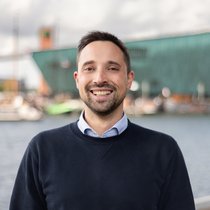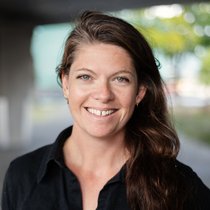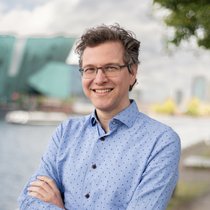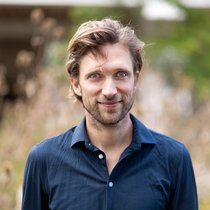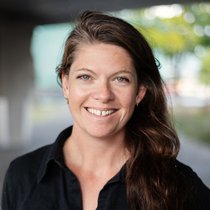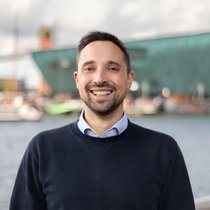In De Nieuwe Straat we strive for a sustainable, innovative, and efficient future, in which we transform not only infrastructure, but also collaboration and work culture. That means:
- Co-creation, trust and job satisfaction - Together we are stronger and come up with innovative ideas and supported solutions.
- Faster innovation - Flexible testing and scaling up within realistic frameworks.
- Sustainable impact - Less environmental impact, longer lifespan, and smart solutions.
How is the research being conducted, and what role does Amsterdam play?
AMS Institute leads research and development in collaboration with researchers from TU Delft and Wageningen University & Research. Together with multiple stakeholders like the City of Amsterdam and contractors, we develop innovations that will be tested in real-world environments in the city. These tests take place in various parts of Amsterdam. Residents, entrepreneurs, and other stakeholders are involved in the process to ensure the solutions are both practical and effective for the city.
Expected Results
The goal of the project is to find practical, scalable solutions that not only improve infrastructure but also contribute to a more circular city and a new way of working in the sector. Therefore:
- We look at increasing and optimising the reuse of paving stones and bricks, including the automation of cleaning and stacking, as in this example of the stacking robot.
- We test low-temperature asphalt, synthetic binders, and recycled materials across multiple test sites (Van Nijenrodeweg, Gooiseweg, Middenweg) to reduce emissions and environmental impact.
- We test a hydrogen-powered, self-sufficient trailer for construction sites. It uses solar panels, emits no pollution, and eases pressure on the electricity grid. Later phases include charging equipment with hydrogen for fully emission-free sites.
- We're piloting a sustainable alternative to natural sand by using fine particles recovered from concrete debris. This reduces reliance on increasingly scarce and environmentally damaging sand extraction.
- We’re testing a new emissions tool that provides insights into project-based emissions from materials, vehicles and machinery.
- Using data, models and AI we’re developing predictive maintenance tools. These help the City of Amsterdam optimize road maintenance for cost, quality, and sustainability.
- We explore bio-based alternatives to bitumen in asphalt to cut CO₂ and reduce dependency on fossil resources. Several test tracks will assess performance and long-term viability.
- On narrow city streets like the Geldersekade and Leidsegracht, we test construction transport over canals to reduce congestion, emissions, and wear on historic quay walls.
“Amsterdam’s pavements are made of bricks and concrete tiles. We aim to increase their reuse by analyzing current processes, logistics, and emissions. As a link between the city and contractors, we provide insight and fresh ideas to support transition to a circular economy .”
Petar Koljensic
Research Fellow
Stay updated
Want to stay informed about all the innovations and insights from De Nieuwe Straat? Follow us on LinkedIn.
Learn and innovate together: Learning Lab Infra
Do you also want to accelerate innovation in infrastructure and experiment and learn together? The Learning Lab Infra offers the knowledge, skills and tools to improve collaboration and processes and to train professionals in the Living Lab way of working.
“De Nieuwe Straat works because we do it together—with contractors, designers, policymakers, and the people who literally pave the streets. Innovation doesn’t happen in isolation. We grow together — by experimenting, reflecting, and building on each other’s insights. What we prototype in one street can inform city-wide policy.”
Anke van Gelderen
Living Lab Coordinator
| Duration: |
|
Principal Investigators
Project members
Partners














